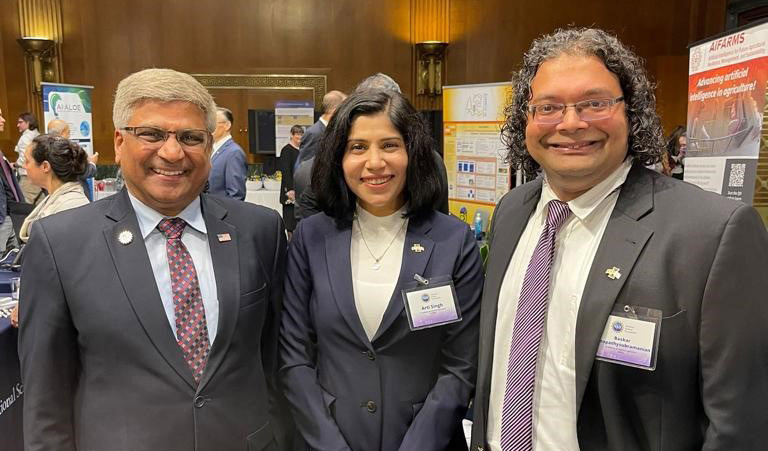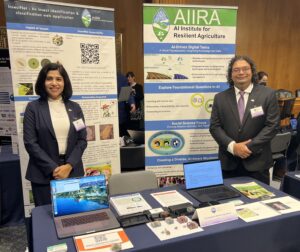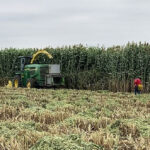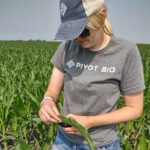
On September 19, members of the Artificial Intelligence Institute for Resilient Agriculture (AIIRA), Dr. Arti Singh, agronomy, and Dr. Baskar Ganapathysubramanian, mechanical engineering and AIIRA director, attended the National Science Foundation’s AI Hill Day at the U.S. Capitol in Washington, D.C. Representatives from the nation’s 25 National AI Research Institutes were invited. Singh and Ganapathysubramanian shared AIIRA’s work on AI advances in agriculture (which included an InsectNet app) and STEM activities by Women in Ag and AI (WIAA). The InsectNet app is a web application that identifies and classifies more than 2,500 insect species using a model trained on 13 million insect images.

At NSF’s AI Hill Day, policy makers, congressional staffers, and other visitors had the opportunity to learn about real-world applications of AI and see firsthand the technologies transforming the AI field and the many ways in which federal investments in AI research are producing innovation, community partnerships, and workforce development.
“It was a very enriching experience to share our ongoing efforts and achievements with lawmakers at the Capitol,” said Singh. “It is exciting to be involved in building AI tools for smarter agriculture and to democratize the access of these AI tools in agriculture. I am also very excited about the WIAA group, as we empower women researchers and help create awareness to diversify our workforce with enhanced women participation.”
Singh explained that the WIAA, an ISU-based group funded by the AIIRA, was formed to increase participation and knowledge dissemination of AI tools and technologies among women. “The group comprises undergraduate and graduate plant science students in agronomy, engineering, computer science, plant pathology, entomology, and microbiology. WIAA routinely carries out demos, workshops, hands-on activities, and broadening participation events for undergraduate students, public and private sector stakeholders,” said Singh.
“This event allowed us to explain to a large spectrum of congressional staff and policy makers the impact of USDA-NIFA investments towards producing AI tools that can make agriculture resilient, profitable and scale-agnostic,” said Ganapathysubramanian.
About the AI Institutes and the AIIRA
Launched in 2020, the AI Institutes represent a $500 million investment connecting over 500 funded and collaborative institutions across the U.S. and worldwide. To learn more about the AI Institutes, visit National AI Research Institutes or nsf.gov.
The AIIRA was launched in 2021 after receiving a five-year, $20 million grant to establish the institute based at Iowa State University. AIIRA is a collaborative project involving faculty members from Iowa State University, the Iowa Soybean Center, the University of Arizona, Carnegie Mellon University, George Mason University, the University of Missouri, the University of Nebraska-Lincoln, and New York University. It is supported through funding by the USDA – National Institute of Food and Agriculture.
Top photo from left, NSF Director Sethuraman Panchanathan with Arti Singh, agronomy, and Baskar Ganapathysubramanian, AIIRA director, mechanical engineering.





